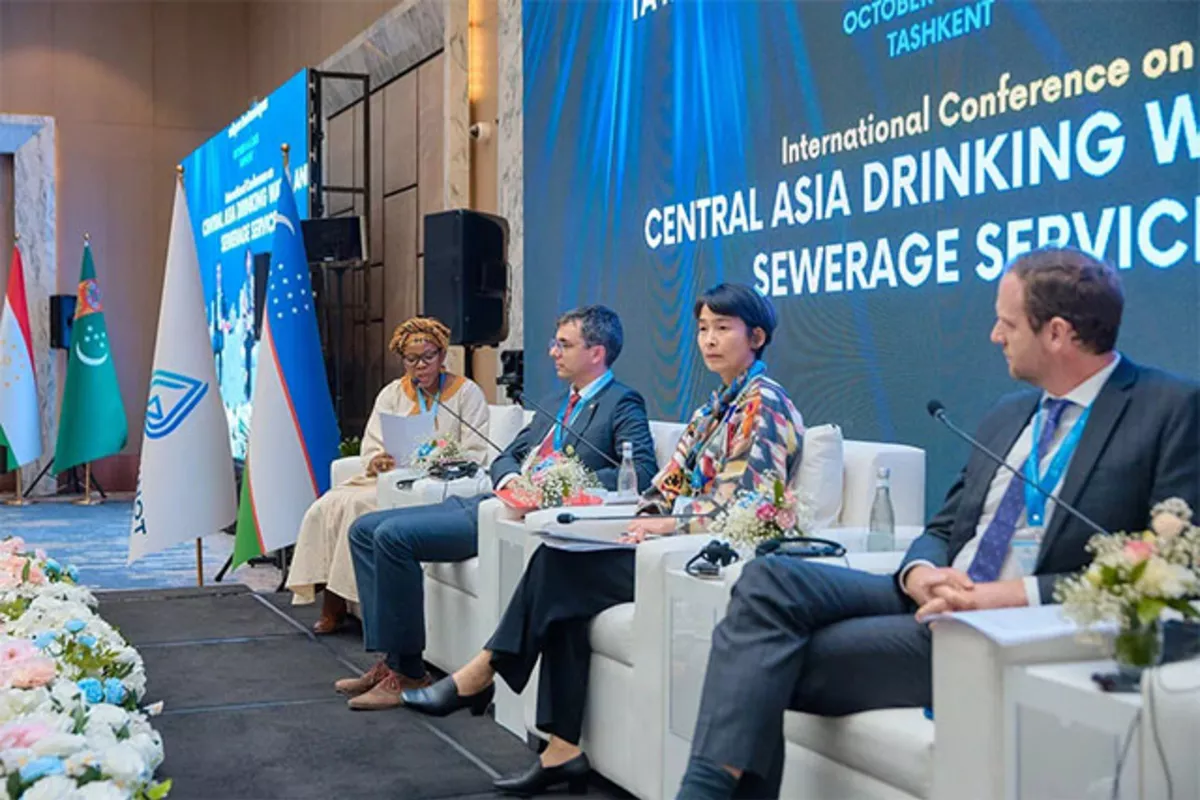
photo: UzDaily.uz
Uzbekistan has hosted the Central Asian Conference on Drinking Water Supply and Sanitation Services, a major regional forum aimed at addressing the growing challenges in the water and sanitation sector.
The high-level, three-day event was organized by the Government of Uzbekistan, JSC Uzsuvta’minot, and the World Bank, with financial support from Switzerland and the Republic of Korea, The Caspian Post informs via Uzbek media.
Held in Tashkent, the conference gathered several hundred participants, including international, regional, and national experts, to exchange best practices and explore practical solutions for improving access to safe drinking water and modernizing sanitation systems.
Despite progress in some areas, participants highlighted that more than 2 billion people globally still lack access to safe drinking water, and 3.5 billion are without basic sanitation services. Meeting international development goals in this area will require annual investments of approximately $140 billion, nearly twice the current level of public funding.
In Central Asia, while over 90 per cent of urban populations have access to drinking water, less than 25 per cent of wastewater is adequately treated, and over 10 million people-mostly in rural communities-still live without access to safe water.
Regional utilities face a host of challenges including aging infrastructure, frequent service disruptions, water losses of up to 40 per cent, and financial instability. Experts also warned that climate change is compounding the issue, increasing water demand while reducing overall availability.
According to estimates shared at the forum, $12 billion in investment is needed across the region to modernize water and sanitation infrastructure, emphasizing the importance of digital innovation, energy efficiency, and sustainable financing.
Government officials and utility leaders from Kazakhstan, Kyrgyzstan, Tajikistan, and Uzbekistan engaged in high-level discussions on regional cooperation, investment strategies, and new technologies to ensure universal access to water and sanitation.
The conference featured multiple strategic and technical sessions focused on attracting international and private capital, improving utility performance, and integrating smart technologies. Case studies from countries such as Austria, Albania, Bulgaria, South Korea, Singapore, Türkiye, and Malawi were also shared.
An exhibition alongside the conference showcased cutting-edge equipment and technologies from both domestic and international companies active in the water sector.
A key topic was human capital development. A special session brought together emerging and experienced professionals to explore training programs, talent retention, and capacity building for the region’s utility workforce.
Participants also visited modern water supply and wastewater treatment facilities in Tashkent Region, as well as enterprises producing specialized equipment and metering devices.
The World Bank, together with the Swiss State Secretariat for Economic Affairs (SECO), the Korea Green Growth Trust Fund (KGGTF), and the Global Water Security and Sanitation Partnership (GWSP), reiterated their support for assisting Central Asian countries meet their water and sanitation targets.
Currently, the World Bank is overseeing $1.1 billion worth of projects in the region, with more than half of the funding focused on improving water supply, expanding infrastructure, and boosting service quality.
Share on social media